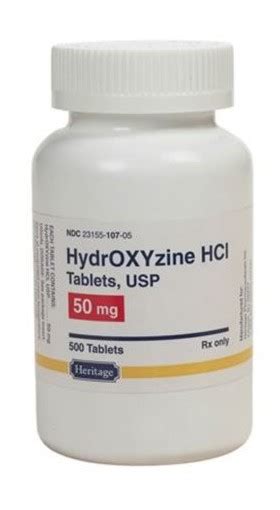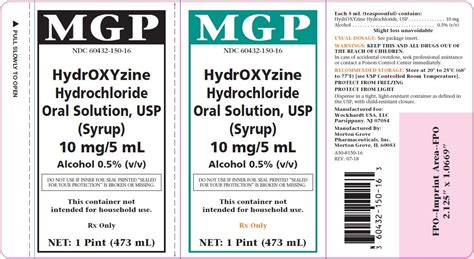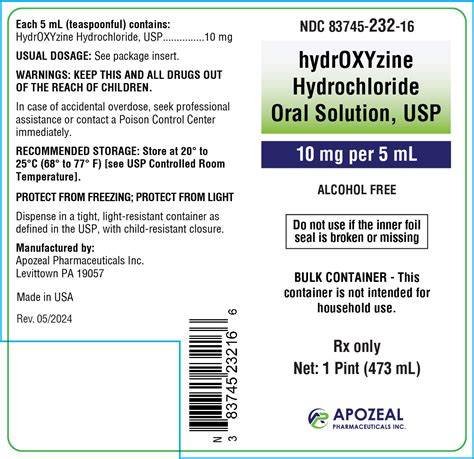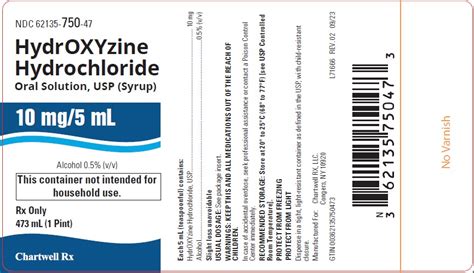Intro
Discover Hydroxyzine uses, including anxiety relief, itch relief, and sedation, with related applications in allergy treatment, insomnia, and nausea management.
Hydroxyzine is a versatile medication that has been widely used for various purposes, including the treatment of allergies, anxiety, and insomnia. Its effectiveness and relatively mild side effects have made it a popular choice among healthcare professionals and patients alike. In this article, we will delve into the different uses of hydroxyzine, its benefits, and its working mechanisms.
Hydroxyzine has been used for decades to treat a range of conditions, from mild allergies to severe anxiety disorders. Its ability to cross the blood-brain barrier and interact with various neurotransmitters makes it an effective medication for treating conditions that affect the central nervous system. Additionally, hydroxyzine has anti-inflammatory and antihistamine properties, which make it useful for treating allergic reactions and itching.
The importance of understanding the uses of hydroxyzine cannot be overstated. With the increasing prevalence of anxiety and sleep disorders, it is essential to have a range of treatment options available. Hydroxyzine offers a unique combination of anxiolytic and sedative effects, making it an attractive choice for patients who struggle with anxiety and insomnia. Furthermore, its relatively mild side effects and low risk of addiction make it a safer alternative to other medications, such as benzodiazepines.
What is Hydroxyzine?

How Does Hydroxyzine Work?
Hydroxyzine's mechanism of action is complex and involves the interaction with multiple neurotransmitters and receptors. Its antihistamine properties are mediated by the blockade of H1 receptors, which reduces the symptoms of allergic reactions, such as itching, sneezing, and runny nose. Additionally, hydroxyzine's anxiolytic effects are thought to be mediated by its interaction with serotonin and GABA receptors, which helps to reduce anxiety and promote relaxation.Uses of Hydroxyzine

Benefits of Hydroxyzine
The benefits of hydroxyzine include: * Rapid onset of action: Hydroxyzine starts working quickly, usually within 15-30 minutes of administration. * Effective in treating a range of conditions: Hydroxyzine is effective in treating allergies, anxiety, insomnia, and nausea and vomiting. * Relatively mild side effects: Hydroxyzine has a relatively mild side effect profile, with common side effects including drowsiness, dry mouth, and dizziness. * Low risk of addiction: Hydroxyzine has a low risk of addiction, making it a safer alternative to other medications, such as benzodiazepines.Dosage and Administration

Side Effects of Hydroxyzine
While hydroxyzine is generally well-tolerated, it can cause side effects, including: * Drowsiness: Hydroxyzine can cause drowsiness, particularly at higher dosages. * Dry mouth: Hydroxyzine can cause dry mouth, which can increase the risk of cavities and other oral health problems. * Dizziness: Hydroxyzine can cause dizziness, particularly when standing up quickly. * Headache: Hydroxyzine can cause headache, particularly at higher dosages.Interactions and Contraindications

Precautions and Warnings
Hydroxyzine has several precautions and warnings, including: * Pregnancy and breastfeeding: Hydroxyzine should be used with caution in pregnant and breastfeeding women, as it can pass into the fetus or breast milk. * Children and adolescents: Hydroxyzine should be used with caution in children and adolescents, as it can cause sedation and other side effects. * Elderly patients: Hydroxyzine should be used with caution in elderly patients, as it can cause sedation and other side effects.Conclusion and Future Directions

As research continues to uncover the mechanisms of action and benefits of hydroxyzine, it is likely that its uses will expand, and it will become an even more valuable medication in the treatment of various conditions. Furthermore, the development of new formulations and delivery systems, such as extended-release tablets and injectable solutions, may improve the efficacy and convenience of hydroxyzine, making it an even more attractive option for patients and healthcare professionals.
We invite you to share your thoughts and experiences with hydroxyzine in the comments below. Have you used hydroxyzine to treat a condition? What were your experiences with the medication? Do you have any questions or concerns about hydroxyzine? We encourage you to share your feedback and engage in a discussion with our community.
What is the typical dosage of hydroxyzine for anxiety?
+The typical dosage of hydroxyzine for anxiety is 50-100 mg per day, taken orally.
Can hydroxyzine be used to treat insomnia in children?
+Hydroxyzine can be used to treat insomnia in children, but it should be used with caution and under the guidance of a healthcare professional.
What are the potential side effects of hydroxyzine?
+The potential side effects of hydroxyzine include drowsiness, dry mouth, dizziness, and headache.
